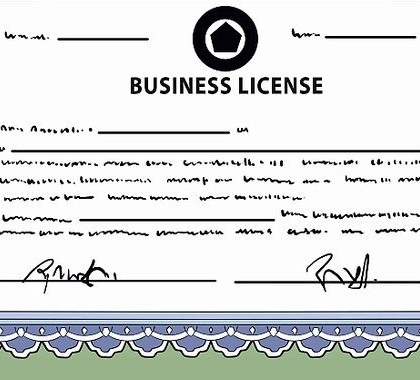Arizona will become the first state recognize most professional licenses granted in the other 49 states, under a new law that becomes effective at the end of August.
With a few exceptions, boards will grant occupational licenses to anyone moving to Arizona with an unblemished license from another state. The law is not limited to states with which Arizona has reciprocity agreements in which one state recognizes another state’s licenses.
The new law covers a wide array of professions, including health care, dentistry, construction, real estate, cosmetology, teaching, accounting, engineering, and embalming. It makes exceptions for lawyers—who will still have to pass the state bar exam—security guards, and private investigators.
Under the statute, Arizona’s licensing boards are only allowed to scrutinize out-of-state licenses that involve professional qualifications specific to Arizona law. A person relocating to Arizona with an out-of-state license must have held that license for at least one year to qualify for recognition.
The new law will remove barriers to employment for about 100,000 people who are expected to move to Arizona in 2019, said Gov. Doug Ducey in a press release. State Rep. Warren Petersen was the primary sponsor of H.B. 2569, which Ducey signed into law on April 10.
Not a ‘Silver Bullet’
The Arizona law is welcome, but further reform is needed, says Paul Avelar, managing attorney for the Institute for Justice’s Arizona office.
“License recognition is a reform that other states should also adopt, but it’s not a silver bullet,” Avelar said.
“Arizona’s reform does not help workers who move from states where their job didn’t require a license but Arizona does, nor does it address the thicket of red tape for Arizonans who have to get a license,” Avelar said.
Big Increase in Licensing
The share of workers forced to obtain a license to do their job has soared from about one in 20 to one in four over the past 60 years, states an IJ report, License to Work (second edition), published in 2017.
“Continuing to license too many occupations means workers and consumers across the country are still unnecessarily burdened,” Avelar said.
Dismantling occupational barriers across state lines would benefit the nation’s workforce, says Gary Wolfram, William Simon Professor of Economics and Public Policy at Hillsdale College and a policy advisor to The Heartland Institute, which publishes Budget & Tax News.
“Arizona is to be congratulated for taking the first step toward reducing the government impediments to individuals seeking employment,” Wolfram said.
“Hopefully, other states will follow and Americans will be able to move across state lines and not lose their ability to maintain and expand their profession.” Wolfram said.
Bonner R. Cohen, Ph.D. ([email protected]) is a senior fellow at the National Center for Public Policy Research.
Official Connections
Arizona Gov. Doug Ducey: https://azgovernor.gov/
Arizona state Rep. Warren Petersen (R-Gilbert): [email protected]
Internet Info
Dick M. Carpenter II, Lisa Knepper, Kyle Sweetland, and Jennifer McDonald, License to Work, A National Study of Burdens from Licensing, 2nd edition, Institute for Justice, November 3, 2017: https://heartland.org/publications-resources/publications/institute-for-justice-license-to-work-2nd-edition-2017





